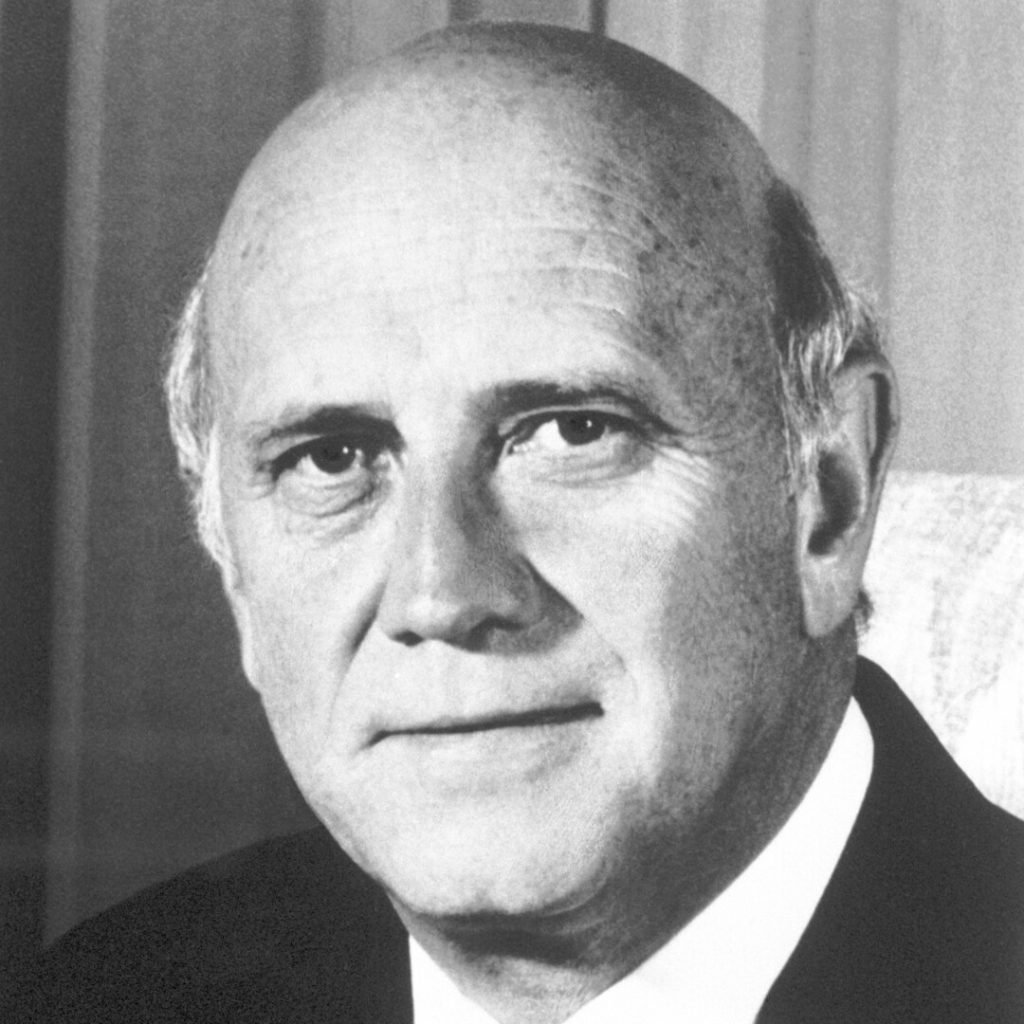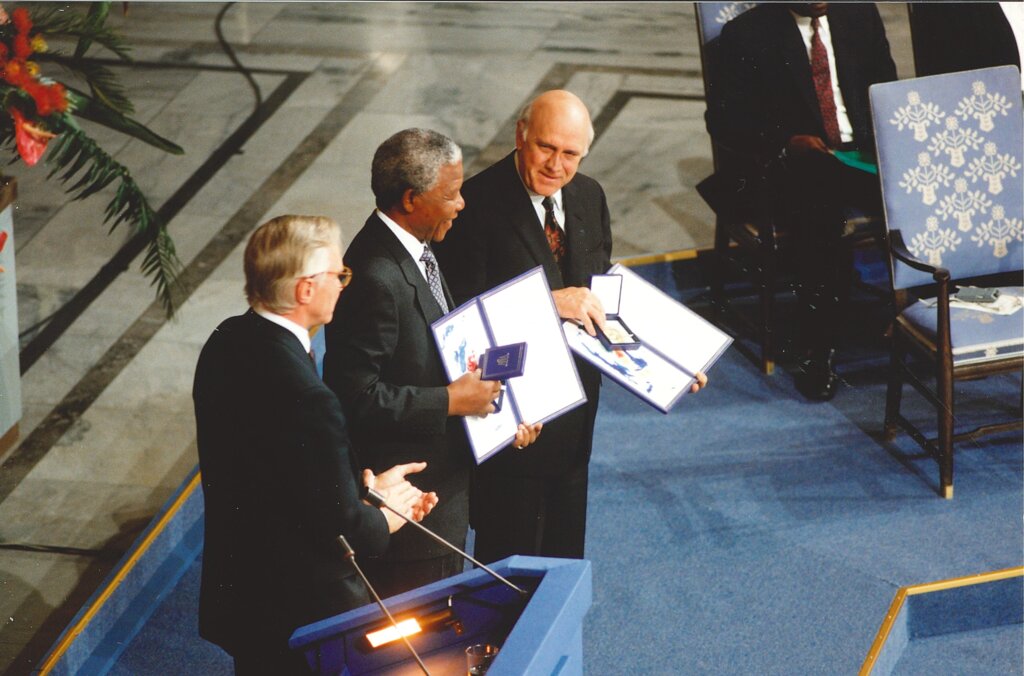F.W. de Klerk
Speed read
Frederik Willem de Klerk was awarded the Nobel Peace Prize, jointly with Nelson Mandela, for his work for the peaceful termination of the apartheid regime, and for laying the foundations for a new democratic South Africa.

Full name: Frederik Willem de Klerk
Born: 18 March 1936, Johannesburg, South Africa
Died: 11 November 2021, Cape Town, South Africa
Date awarded: 15 October 1993
From apartheid to majority rule
In 1990, South Africa’s President F. W. de Klerk ordered the release of political prisoner Nelson Mandela, who had been imprisoned since 1962. These two leaders then joined forces to dismantle apartheid. Their efforts led to their selection as the 1993 Nobel Peace Prize recipients. Both as a parliamentarian and a cabinet member, de Klerk had defended the privileges of whites. When he realised that the system of apartheid was about to collapse, he sought out a new course. In the face of threats set forth by white extremists, he chose to negotiate with Mandela and the ANC liberation movement. Together they laid the groundwork for presidential elections and a new constitution that ensured universal suffrage.
"Eminent statesmanship has been demonstrated in South Africa, and it is astonishing what has been achieved since Mandela was released in 1990."
Leader of the Nobel Committee Francis Sejersted, Presentation speech, 10 December 1993.

Religious justification for apartheid
Many adherents of apartheid believed that they were “a chosen people” who had been given divine rights to the country of South Africa. They also felt it was their sacred duty to civilise the blacks, who were both spiritually and culturally inferior. Some members of the clergy perceived the obligation of the whites as follows: “The Natives must be led and formed towards independence so that they will eventually be equal to the Europeans, but each in his own territory and each serving God in his own fatherland.”
What enabled de Klerk to negotiate with Mandela?
When de Klerk became president of South Africa in 1989, he chose to continue negotiations with ANC leader Mandela. The Soviet Union had collapsed, which meant that the ANC lost an important source of international support. The communist spectre behind the ANC disappeared, making it easier for de Klerk to negotiate. In addition, the ANC changed its economic policy line, abandoning its demands that the state should expropriate private property. This generated hope that the white majority could retain much of its dominance in trade and industry.
Confronting the past and seeking reconciliation
The proceedings of the Truth and Reconciliation Commission in 1998 led to an outcry of recrimination against F.W. de Klerk. During the Commission’s enquiries into human rights violations by the apartheid regime, de Klerk was accused of having been informed of security force bombings against members of the black liberation struggle in the 1980s. De Klerk denied these accusations, which were not pursued by the Commission. Since then the laureate has concentrated his efforts on the F.W. de Klerk Foundation, which promotes conflict resolution in multicultural societies.
De Klerk’s party becomes part of the ANC
Following the 1994 parliamentary elections, the National Party, which had nurtured the apartheid system in South Africa, entered into extensive cooperation with its arch-enemy the ANC. The National Party was awarded several cabinet posts and became integrated into the ANC party organisation. F.W. de Klerk was among those who objected to these developments. Expressing his concern that dismantling the National Party would curb political debate, he resigned from the party.
| National Party (South Africa) Established in 1914 by South Africans of Dutch descent (Boers). First came to power in 1924. Ruling party in South Africa from 1948 to 1994, responsible for introducing the segregationist policy of apartheid. |
Learn more
Frederik Willem de Klerk was born in Johannesburg on March 18, 1936. He is the son of Senator Jan de Klerk, a leading politician, who became minister in the South African government ...
Nobel Prize lecture
Read F.W. de Klerk's Nobel Prize lecture held in Oslo, Norway on 10 December 1993.
F.W. de Klerk delivering his Nobel Lecture.
© Knudsens fotosenter/Dextra Photo, Norsk Teknisk Museum.
Disclaimer: Every effort has been made by the publisher to credit organisations and individuals with regard to the supply of photographs. Please notify the publishers regarding corrections.
Nobel Prizes and laureates
Six prizes were awarded for achievements that have conferred the greatest benefit to humankind. The 14 laureates' work and discoveries range from quantum tunnelling to promoting democratic rights.
See them all presented here.
